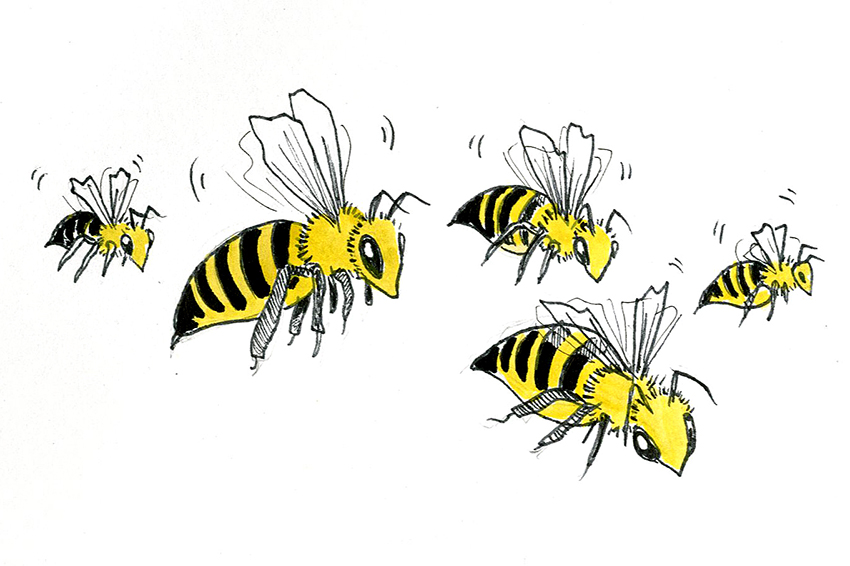While bees pollinate the plants that provide much of the world’s food and make the honey that tea drinkers know and love, their current situation is not very sweet.
The mystery behind high death rates in the honeybee population has led UT scientists and beekeepers to suspect the use of pesticides as an integral cause of colony collapse disorder — but there are other reasons behind the decline in bee numbers.
In colony collapse disorder, a phenomenon that drew national attention starting in 2006, a hive’s workforce abandons its queen and infantile bees to provide for themselves, which ultimately leads to starvation and death of the colony. In 2014, 23.1 percent of hives across the U.S. did not survive the winter, according to the EPA.
Recently, media outlets including the New York Times, CNN and BBC News have reported an insecticide called naled, which is being used to kill zika-carrying mosquitoes in South Carolina and other parts of southeastern America, is also contributing to the death of millions of honeybees.
Nancy Moran, head of the Moran lab at UT, conducts research on the genomics of bacterial gut communities in insects such as honeybees. She said pesticides are one of many possible causes of colony collapse.
Moran said neonicotinoids, another widely-used class of systemic insecticides, or insecticides that are absorbed throughout the plant, could adversely affect bees which forage on crops that have been treated.
“The fact that [systemic pesticides] are in every part of the plant — the leaves, the stem, the nectar, the pollen — makes it even more unavoidable for honeybees and other keystone pollinators,” Moran said.
Brandon Fehrenkamp is the owner of Austin Bees, a local beekeeping business that conducts hive removals, as well as a mentor with the Texas Master Beekeeping Program and the Beevo Beekeeping Society on the UT campus.
Fehrenkamp said colony collapse is not the only problem for bees — the widespread practice of planting only one type of crop, commonly known as monocropping, is also contributing to population losses. These pesticide-dependent monocrops are susceptible to diseases and often do not flower, which can mean less food for foraging bees, he said.
“It really is in the way that a lot of our agriculture is set up — it’s unsustainable,” Fehrenkamp said. “With the pesticides being used, some of the effects might not be drastic but can still affect the pollinators in a negative way through what’s called ‘sublethal effects,’ which are enough to make the colony sick or weaken it in some way that isn’t as obvious.”
Moran said another problem for bees involves those that rely predominantly on roadside wildflowers and weeds. These bees lose habitat when the plants are killed off by herbicides. She added that honey bees aren’t the only pollinators affected by herbicides: Detrimental effects can also be found in butterflies and native bees such as bumblebees and carpenter bees.
Fehrenkamp said plausible measures can be undertaken in the world of agribusiness that are beneficial for all pollinators.
“Clear communication between organizations and farmers that are applying pesticides and coordination with beekeepers and other niche specialists are paramount in hive preservation and crop fertility,” Fehrenkamp said.
Fahrenkamp said it is easier to consider solutions when farmers realize the impact of pesticides reaches beyond the insects they are trying to deter.
“Once the farmers decide to spray insecticides and fungicides and pesticides, they can’t take it back,” he said.
Fahrenkamp added that, despite recent events, he puts his faith in the hidden good that colony collapse has brought.
“It’s raised a ton of awareness about the importance of what’s right under us, which I don’t think would’ve happened along other channels,” he said.















